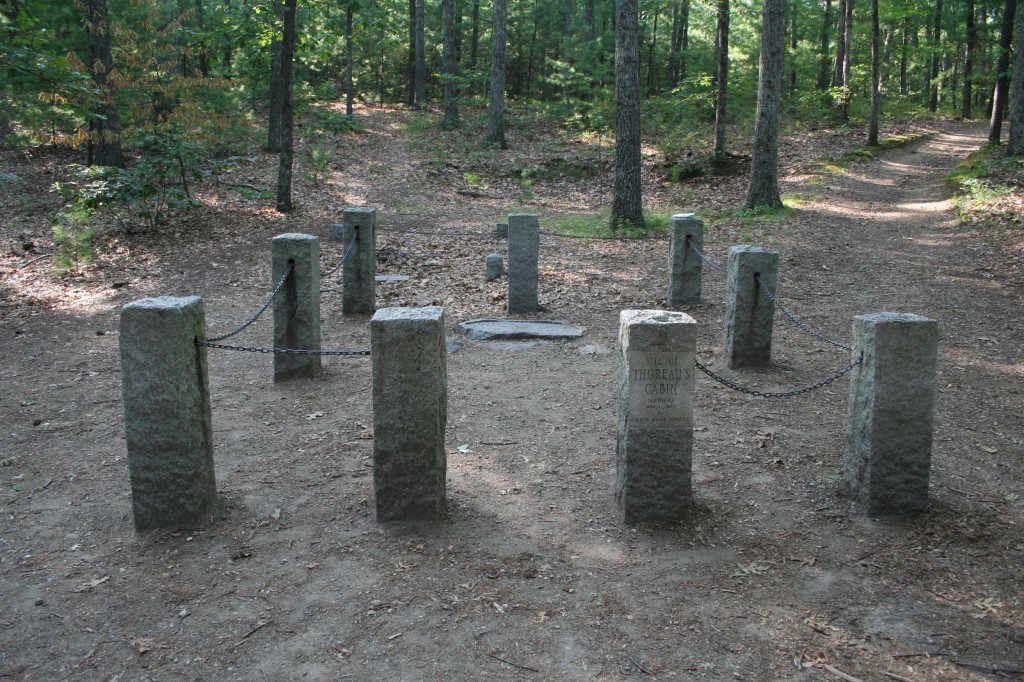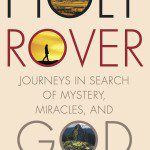Thoreau died virtually unknown to the larger world, but in the years since then his reputation and influence have grown ever larger. His essay “On the Duty of Civil Disobedience” (written after he spent a night in the Concord jail for refusing to pay his taxes because of the country’s support for slavery and the Mexican War) had a profound influence on Gandhi and Martin Luther King, Jr., in particular.
But it is Walden that speaks most clearly across the years to us. I know for me visiting Walden Pond was a true pilgrimage. At first I feared it would be disappointing, for the parking lot was crowded with cars and chattering groups of people heading out to explore the area. Then we walked to the replica of Thoreau’s cabin (the original hut long ago disappeared), and something of the spirit of the place began to emerge. The building is simple and small but cozy. Furnished with a chair, a bed, and a desk, it would still make a fine writer’s retreat.
But the highlight of our visit came when we hiked a half-mile into the nearby woods to the site where Thoreau’s cabin once stood. It was a warm, sunny day, and with each step the noise of people in the parking lot became more muted. The cabin site is in a small clearing in the woods, with posts that mark where the walls once stood. And just down the hill is serene Walden Pond, its surface sparkling with sunlight, ringed by thick woods, looking not so different, I would suspect, from when Thoreau lived here.

If America has a sacred scripture, surely the words that Thoreau wrote in this cabin are part of the text. Here are a few selections:
“I wanted to live deep and suck out all the marrow of life, to live so sturdily and Spartan-like as to put to rout all that was not life, to cut a broad swath and shave close, to drive life into a corner, and reduce it to its lowest terms, and, if it proved to be mean, why then to get the whole and genuine meanness of it, and publish its meanness to the world; or if it were sublime, to know it by experience, and be able to give a true account of it in my next excursion.”
“To be a philosopher is not merely to have subtle thoughts, nor even to found a school, but so to love wisdom as to live according to its dictates, a life of simplicity, independence, magnanimity, and trust.”
“Why should we be in such desperate haste to succeed and in such desperate enterprises? If a man does not keep pace with his companions, perhaps it is because he hears a different drummer. Let him step to the music which he hears, however measured or far away. It is not important that he should mature as soon as an apple tree or an oak. Shall he turn his spring into summer?”
“In short, I am convinced, both by faith and experience, that to maintain one’s self on this earth is not a hardship but a pastime, if we will live simply and wisely; as the pursuits of the simpler nations are still the sports of the more artificial. It is not necessary that a man should earn his living by the sweat of his brow, unless he sweats easier than I do.”
“A man is rich in proportion to the number of things which he can afford to let alone.”
“Our life is frittered away by detail. An honest man has hardly need to count more than his ten fingers, or in extreme cases he may add his ten toes, and lump the rest. Simplicity, simplicity, simplicity! I say, let your affairs be as two or three, and not a hundred or a thousand; instead of a million count half a dozen, and keep your accounts on your thumb-nail. In the midst of this chopping sea of civilized life, such are the clouds and storms and quicksands and thousand-and-one items to be allowed for, that a man has to live, if he would not founder and go to the bottom and not make his port at all, by dead reckoning, and he must be a great calculator indeed who succeeds. Simplify, simplify.”











